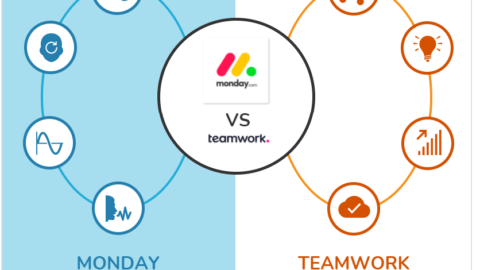The Pros and Cons of Popular Programming Paradigms
Programming paradigms refer to various styles or approaches to writing code that are used to create computer programs. There are several programming paradigms, each with its unique structure and sets of rules. Some of the most popular programming paradigms include procedural, object-oriented, functional, and logic-based programming.
Table of Contents
Choosing the right programming paradigm to use depends on various factors, such as the nature of the task, the size of the project, and the development environment. It’s essential to choose the right programming paradigm when starting a project to ensure efficiency and maintainability.
Pros and Cons of Procedural Programming Paradigms
Procedural programming is a popular programming paradigm that has been around for decades. It has been used to develop a wide range of software applications and is still being used today. However, it has its own set of advantages and disadvantages.
Pros of Procedural Programming Paradigms:
- Easy to Learn: Procedural programming is easy to learn and understand, especially for beginners. The programming concepts are straightforward, and it follows a step-by-step process that is easy to follow.
- Code Reusability: By breaking down a program into smaller subroutines or functions, procedural programming allows developers to reuse their code. This can save a lot of time, especially when working on larger projects.
- Modularity: The modularity of procedural programming makes it easy to isolate bugs and fix them. The program is divided into small modules or functions, allowing developers to test specific parts of the program without affecting the entire program.
- Predictable: Procedural programming follows a step-by-step process, making it predictable. This enables developers to estimate the time and effort required to complete a project.
Cons of Procedural Programming Paradigms:
- Maintenance: As programs grow in complexity, maintaining and updating procedural code becomes more challenging. This is due to the fact that large programs can have intricate dependencies between different functions.
- Limited Scalability: As programs become larger and more complex, procedural programming becomes less scalable. This is because it becomes harder to manage the codebase and dependencies.
- Debugging: Debugging a large procedural program can be challenging. This is because the program’s execution is not always predictable, and bugs can occur in unexpected places.
- Code Duplication: Code duplication can be a problem if functions are not designed correctly. If a function is duplicated across multiple programs, changes made to one program may not be reflected across all programs.
Pros and Cons of Object-Oriented Programming Paradigms
Object-oriented programming (OOP) is a popular programming paradigm that focuses on the creation of objects and their interactions with one another. OOP allows developers to create software applications by breaking them down into smaller, reusable components. This makes it easier to develop complex programs without having to write large amounts of code each time.
Pros:
- Modular programming: Object-oriented programming allows developers to create components that can be easily reused, reducing the amount of code needed and allowing for easier maintenance.
- Easy scalability: Object-oriented programming is designed in such a way that it can easily scale up or down as needed. This makes it ideal for large projects with changing requirements.
- Code reusability: Components created through object-oriented programming are reusable, making development faster and more efficient.
- Improved security: The use of encapsulation and abstraction helps to improve the security of an application since data is hidden from external sources by default unless specifically allowed otherwise by the developer(s).
Cons:
- Complexity: Object-oriented programming requires more intricate planning than other paradigms due to its reliance on creating objects which contain both properties (data) and methods (functions). This complexity increases drastically when dealing with multiple objects interacting with each other, resulting in high development time frames compared to other languages/paradigms required for developing complex software applications quickly and efficiently.
2 Debugging: Debugging object-oriented programs can be difficult due to their complicated structure which might require debugging several different objects and classes instead of a single procedure.
- Performance: Object-oriented systems tend to be slower than procedural programming languages due to the overhead of creating objects and their associated properties. This is especially true when dealing with large sets of data where speed is important.

Pros and Cons of Functional Programming Paradigms
Functional programming is a programming paradigm that focuses on the evaluation of mathematical functions and avoids changing state and mutable data. It is ideal for developing complex software applications, and it has its own advantages and drawbacks.
Pros:
- Clarity: Functional programming promotes clear and concise code by avoiding side effects and mutable data. Programs written in functional languages are generally easier to read, understand, and maintain.
- Scalability: Functional programming is a scalable programming paradigm that can handle large codebases and complex programs without losing performance. This is because functional languages use immutable data structures.
- Reusability: Functional programming encourages developers to create reusable code. Functions written in functional languages can be used across different programs and contexts, reducing development time and effort.
- Concurrency: Functional programming makes it easier to design programs that can run concurrently. By avoiding mutable data and side effects, functional programs can function safely and effectively in a multi-threaded environment.
Cons:
- Learning Curve: Functional programming requires a different mindset and programming style than procedural or object-oriented programming. It can take some time to learn and adapt to functional programming concepts.
- Performance: Although functional programming excels in scalability, it is often slower than imperative-based languages due to the overhead of creating and manipulating immutable data structures.
- Limited Libraries: Functional programming is still a niche programming paradigm, and it may not have the same level of support and libraries as more popular languages.
- Debugging: Debugging functional programs can be challenging, especially when dealing with complex data structures and recursion. Functional programming requires a different approach to debugging. But it can be difficult for programmers who use imperative paradigms.
Choosing the best IDE for Python development can be a challenging task, but with all of the great options available, you’ll certainly find one that suits your needs. Ultimately, the best choice will depend on what type of project you are working on and which features are most important to you.

With more than 20 years of progressive experience as Program Manager and Project Manager had led complex IT projects/programs in a wide variety of industries in America, Latin America & Italia.
Mario Bisson Andini is an advanced Program Manager who is the founder of Bisson Training.










